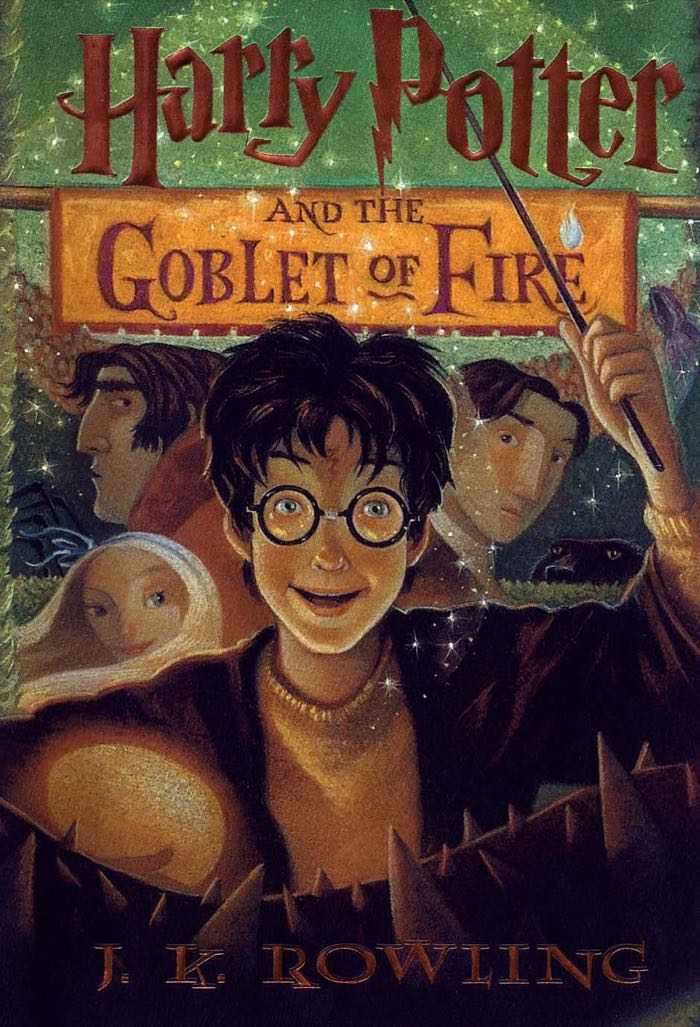Harry Potter and the Goblet of Fire
Series: Harry Potter 4
Reviewed date: 2018 Aug 22
Rating: 4
734 pages
I'd had enough of Harry Potter after the third book, Harry Potter and the Prisoner of Azkaban. The world of Hogwarts and Muggles and Voldemort was wearing a bit thin. But I noticed that Harry Potter and the Goblet of Fire won the 2001 Hugo Award for Best Novel, over some stiff competition. And I'd heard that the Harry Potter books got progressively darker and mature as the series went on, so I figured I'd give it another shot.
Harry Potter and the Goblet of Fire is long. At 734 pages it's about twice as long as the previous books. And for the first 550 pages, it was a well-written juvenile fantasy novel that showed me nothing to make it worthy of a Hugo nomination, let alone a win. And then it got good.
Harry Potter and the Goblet of Fire deserves its Hugo nomination and win. For the last 200 pages or so I was enthralled, nearly unable to put it down. That rarely happens.
The first three books are juvenile fantasy stories. There is danger and excitement, sure--Voldemort is trying to kill Harry Potter. But there's never a real sense of loss or true danger. It's all a grand adventure. Here, though, it all changes. People start dying. People Harry cares about. People we care about. Harry is emotionally and psychologically scarred. And we realize the stakes are much higher than previously imagined. Before, it seemed like Voldermort had a personal vendetta against Harry Potter. Now it's clear that Voldemort is a real and looming threat to the entire world, magic and muggles alike. If he's not stopped, Voldemort will literally conquer and enslave the entire world--whatever part he hasn't killed and destroyed, that is.
Albus Dumbledore isn't just a kindly old headmaster of a boarding school for young wizards; he's a desperate champion for the forces of good, doing what he must to oppose Voldemort. He's a prophet ignored by his own people (wizards), a voice crying out, warning of the coming danger. The Tri-Wizard Tournament isn't just an exercise in international wizarding relations, it's Dumbledore's desperate attempt to reach out for new allies and new partnerships which he so desperately needs in the struggle against Voldermort and the Death Eaters.
Furthermore, we see the dysfunctional workings of wizard society. We see the sham trials and the politically-motivated punishments for those suspected of being in league with Voldemort--and of those suspected of associated with those suspected of being in league with Voldemort. We see the compromises people make in order to feel safe and secure. We see a father, consumed by ambition, consign his son to imprisonment, torture, and death on the flimsiest of circumstantial evidence. We see a son murder his father. We see good people willingly blind themselves to the truth in front of them, because to admit it would require them to do something about it. We see people harassed and bullied and threatened because of racial prejudice and fear. And Harry Potter and his friends and classmates at Hogwarts are in the thick of it. Everyone is in the thick of it. Evil is everywhere.
It's not a perfect book. I think it would be a stronger book if cut down to 500 or even 400 pages. But as it is, it's very good.
On the other hand, Harry Potter and the Prisoner of Azkaban definitely did not deserve its Hugo nomination in 2000.
